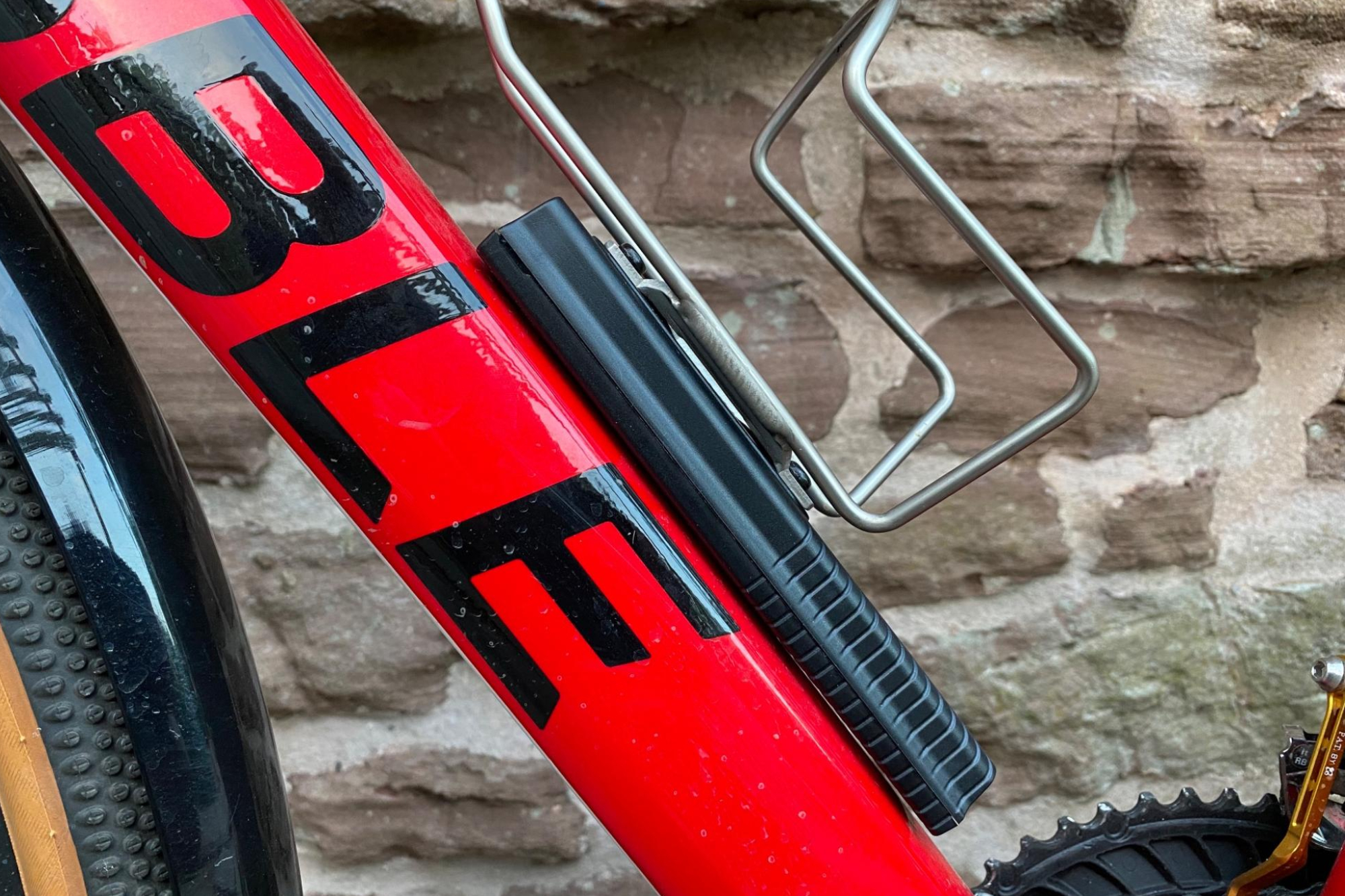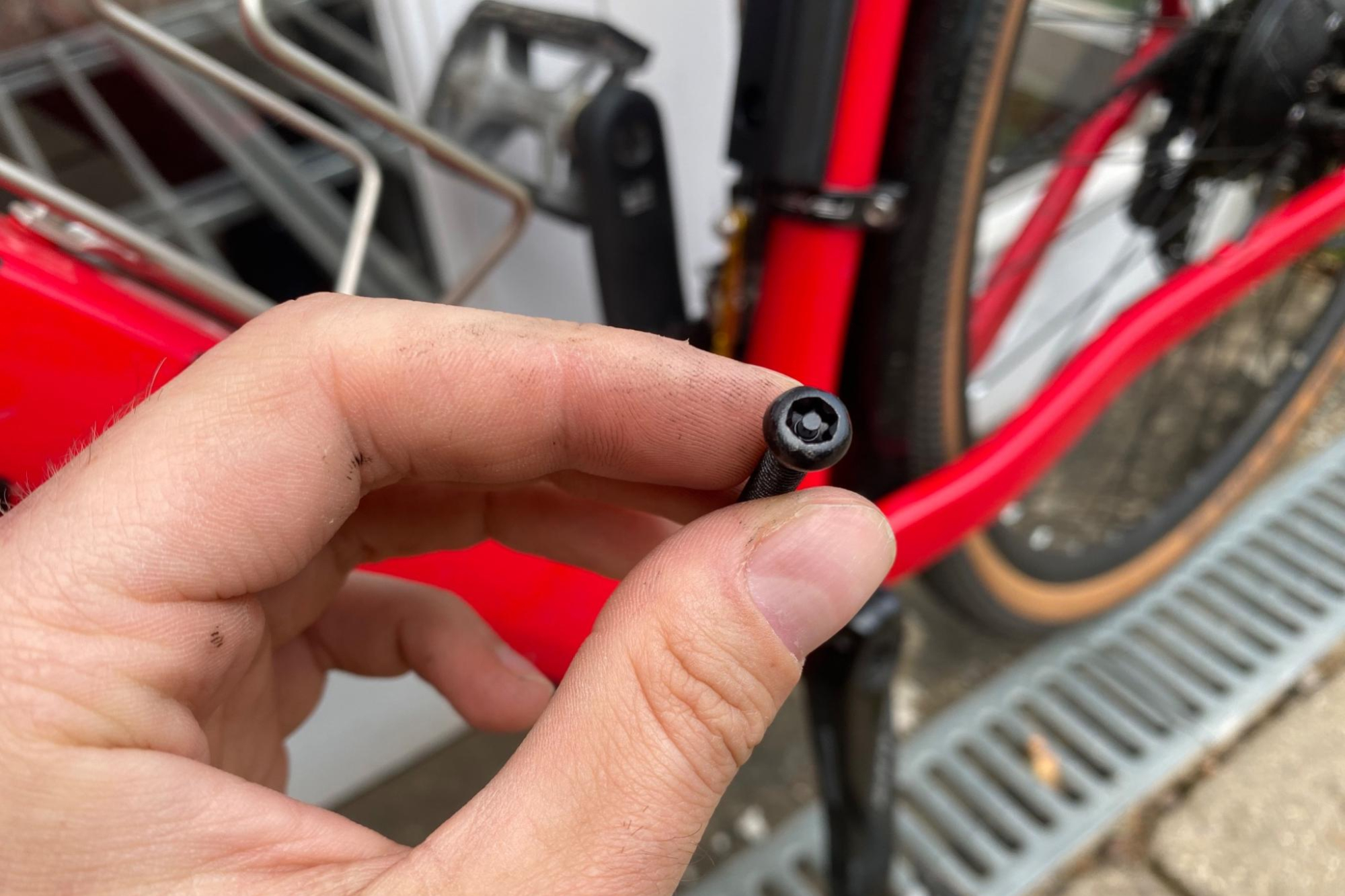Leopard Lync smart alarm & theft monitoring device review - a neat alternative to AirTags and similar
Rather than relying on iPhones being close enough to connect via Bluetooth, the Leopard Lync instead employs GPS for 'global' coverage - but it comes at a premium

The Leopard Lync is a sleek and streamlined security device that does exactly what it says on the tin. The alarm is loud enough to hopefully deter someone from running off with your bike without attracting a lot of unwanted attention, and the GPS tracking means you can keep an eye on where your bike is at all times. It’s not exactly hidden though, and with some brute force could be removed. It also is a subscription based service so the upfront cost isn’t the only one. But if you value the security of your bike, this is a useful addition.
-
+
Lightweight
-
+
USB-C charging
-
+
Can be mounted under a bottle cage
-
+
Security torx locking
-
+
Accurate GPS tracking
-
+
Lightweight
-
-
Not as loud as expected
-
-
Subscription based security
You can trust Cycling Weekly.

Additional note: I started to get issues connecting the device to my phone and the app. Went through the standard restarting the phone, uninstalling the app, and trying to forget and reconnect the device. I tried to get in touch with customer support but several days later I haven’t heard anything back just yet. A few days later and it is still being buggy (images below while phone was in range and connected)
A relatively new company, Leopard Tech, aims to promote bicycle anti-theft, GPS tracking and IoT (Internet of things) connectivity. The idea is the sensors can use other tech connected to the internet to locate the device and ensure it won’t be lost or out of signal.
Leopard Lync: construction

At 168mm long, 23mm deep, 36mm wide, and 103g in weight, the Leopard Lync is fairly streamlined and doesn’t look out of place on a bike with the sleek black plastic casing.

Charging is done via USB-C with a small rubber plug that covers up the charging port while it’s on the bike to weather proof it.
Fitting is done via special security Torx screws which can have a bottle cage mounted onto the Leopard Lync as well.
Leopard Lync: the ride

Fitting the system to the bike was very easy as a security torx tool is supplied with the device. Simply remove the bottle cage bolts and use the ones supplied. Long bolts for if you are mounting it under a bottle cage, or short bolts if not using a bottle cage ontop. The device fits snugly on the frame and doesn’t look bulky or out of place.
Synchronising with the app was also very smooth. Straight away, it is easy to see the exact location of the bike. As I moved it from inside the house to outside, the little icon on the map moved clearly and accurately on the map.
When setting up the sensor, you can also set up the bike that it is on with exact details such as brand, colour and serial number. This is so that, in the event of the bike being stolen, the details about it can also be shared easily.
As for how it can register if the bike has been stolen, there are several ways. Firstly, if the bike is put to the side and left for a certain period of time, the Leopard assumes that it has been left somewhere intentionally. When it is then moved, an alert is sent to your phone to say that the bike has been moved. You can also set the bike to be locked when you leave it. Until it is unlocked, any movement will set off the alarm. It’s loud, but not excessively so. The biggest benefit of it isn’t so much that it will help you find the bike, but that it will draw attention to other people that the bike is likely being stolen.
There is also the benefit with the GPS tracking, that any family members who are wanting to see how you are doing out on your rides, can check on your location. This is useful for working out when someone will be getting home, or checking that they are okay on their ride if they haven’t been heard from for a while.
The alarm itself could be louder, but the GPS tracking and locking features are ones that I really like. The device itself isn’t cheap, such as AirTags for example, but it does work off a more diverse network rather than relying on other iPhones being near the AirTag. There is also the fact that the service is subscription based, however for the year is £43.90 and two years is £79.90.
Some other useful features are the Travel mode, so that when the bike is in transit and being moved about the alarm will not sound. There is also a geozone that you can set where the alarm won’t be active, for example when it’s in the house rather than say locked up outside of work, school or a café.
Leopard Lync: value and conclusion
Value wise, the Leopard Lync comes in at £139.00 which is a premium price but the functionality is very good. Although other such security devices such as AirTags are cheaper at £29.00, they rely on Apple devices being nearby to give off a signal whereas the Leopard uses a far broader network. The AirTags are also 40-60 dB rather than 109 of the Leopard Lync. The only downside with the Leopard is the subscription service which does mean overall the price mounts up over time.
There is also the Knog Scout Bike Alarm & Finder at £49.99, 25g, and 85dB which presents far greater value in the short and long term. However, like the AirTags, this works off the Apple FindMy app system so is a bit more limited in GPS accuracy and relies on Apple devices to be nearby.
The Leopard Lync is a solid device that adds very little weight to your bike and looks very sleek. The alarm is loud and should be enough to draw attention to someone trying to walk off with your bike.
The app is also very well made and easy to use. There were a few situations where my phone didn’t connect to the app and the alarm wouldn’t shut off, but better safe than sorry. The subscription payment is frustrating and will mount up over time, but the system works well.

Thank you for reading 20 articles this month* Join now for unlimited access
Enjoy your first month for just £1 / $1 / €1
*Read 5 free articles per month without a subscription

Join now for unlimited access
Try first month for just £1 / $1 / €1
Get The Leadout Newsletter
The latest race content, interviews, features, reviews and expert buying guides, direct to your inbox!
Andy is a Sport & Exercise Scientist, fully qualified and experienced Cycling Coach, Sports Director, Freelance Writer, and Performance Consultant. He spent 3 years riding for a UCI cycling team and 7 years as a BC Elite rider, competing in prestigious events such as the Tour of Britain and the Volta a Portugal.
Graduating with a first-class honours degree in Sport & Exercise Sciences, he continues to pursue his interest in research in the field of Sport Science alongside managing his coaching business, ATP Performance. He also works as a Wind Tunnel operator and Performance Consultant at the Silverstone Sports Engineering Hub, working with individuals, teams, and businesses to optimise performance and develop products.
-
 'I'll take a top 10, that's alright in the end' - Fred Wright finishes best of British at Paris-Roubaix
'I'll take a top 10, that's alright in the end' - Fred Wright finishes best of British at Paris-RoubaixBahrain-Victorious rider came back from a mechanical on the Arenberg to place ninth
By Adam Becket Published
-
 'This is the furthest ride I've actually ever done' - Matthew Brennan lights up Paris-Roubaix at 19 years old
'This is the furthest ride I've actually ever done' - Matthew Brennan lights up Paris-Roubaix at 19 years oldThe day's youngest rider reflects on 'killer' Monument debut
By Tom Davidson Published
-
 'One of the hardest races I've ever done in my life' - Tadej Pogačar finishes runner-up on Paris-Roubaix debut after crash
'One of the hardest races I've ever done in my life' - Tadej Pogačar finishes runner-up on Paris-Roubaix debut after crashWorld champion reacts to 'extremely hard' battle with Mathieu van der Poel
By Tom Davidson Published